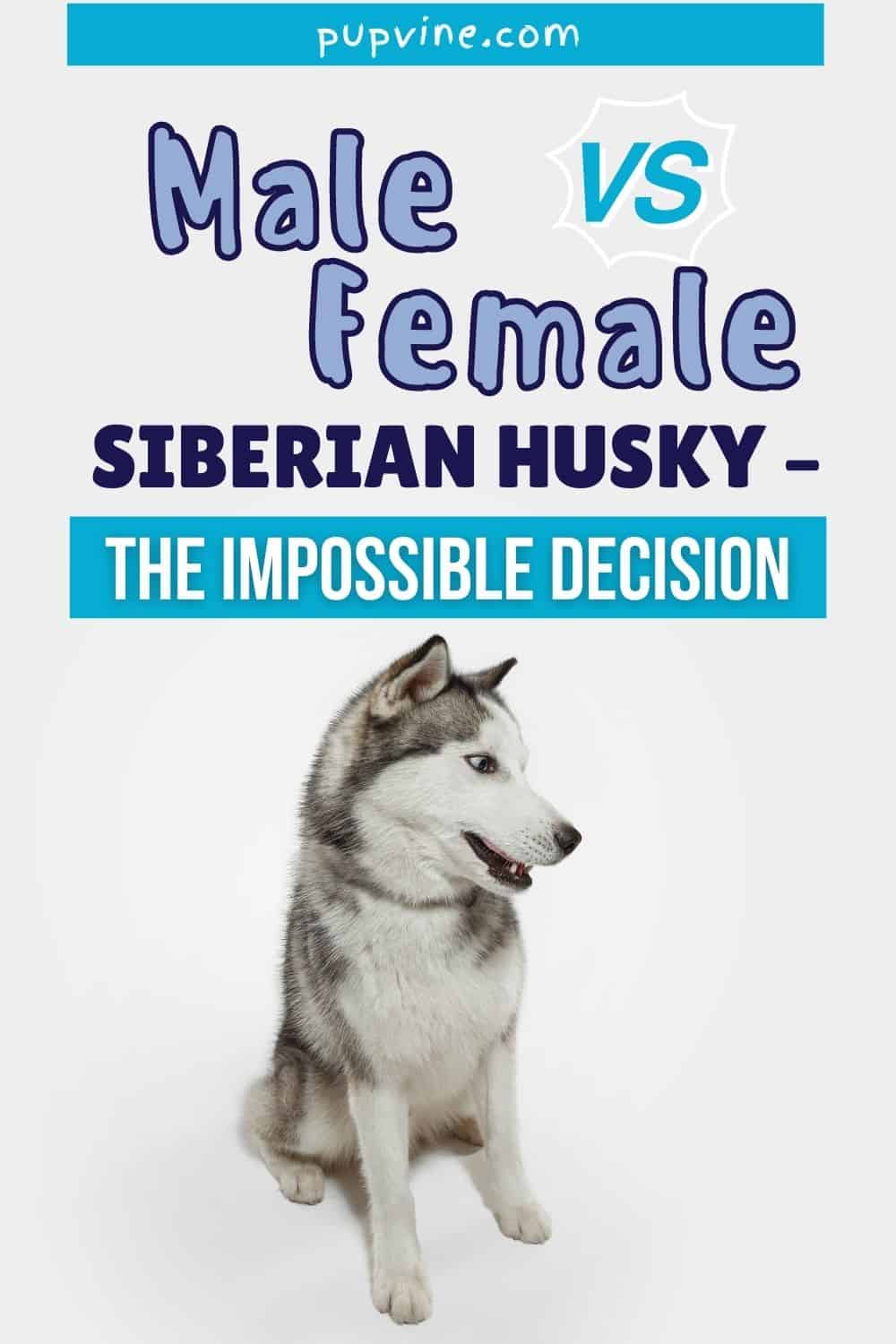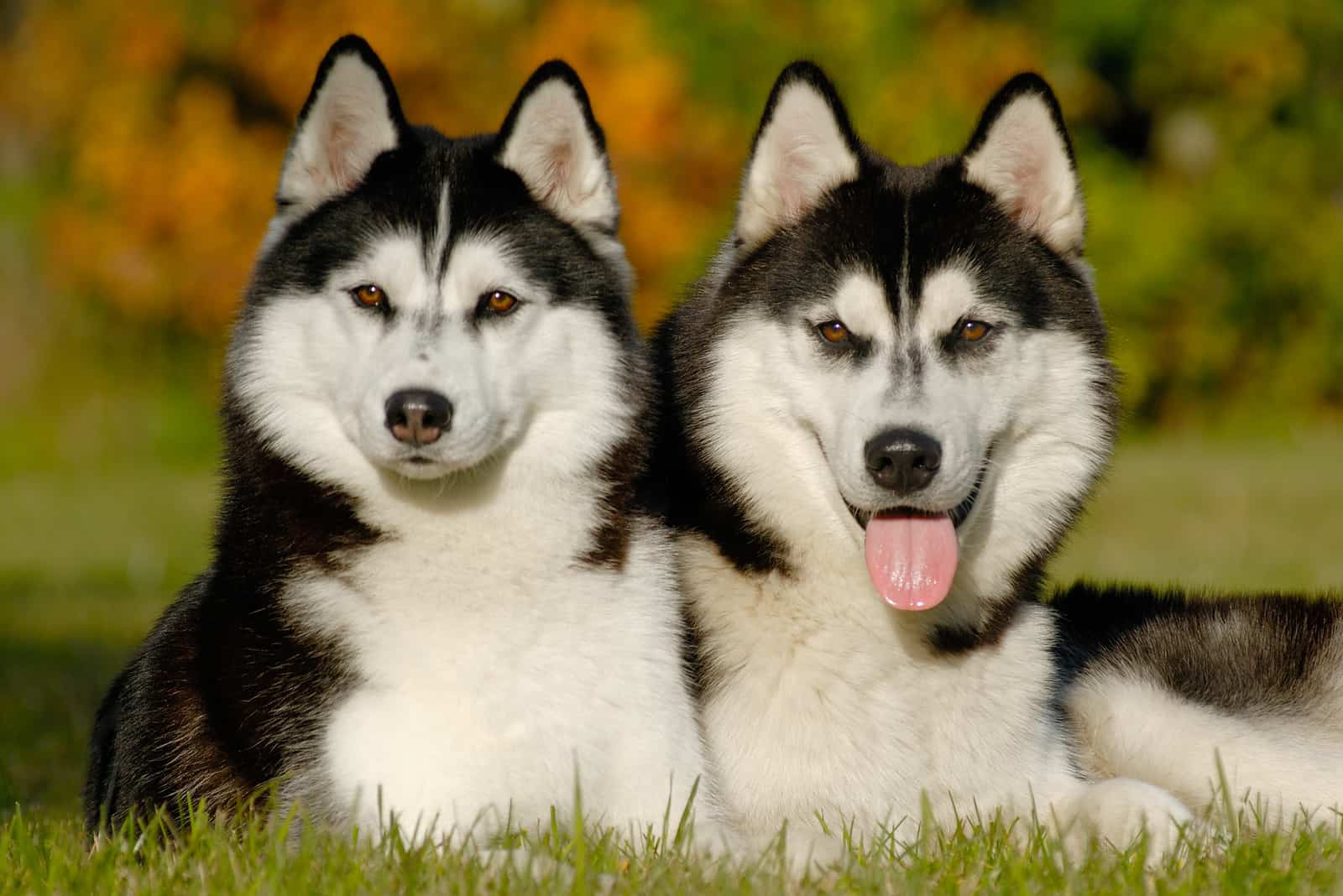Choosing between a male vs a female Siberian Husky is a tough decision that no one should take. Why? Because they’re both pawesome dogs! Once used as sled dogs in the Arctic, Alaska, and Siberia, Huskies are now popular family dogs.
These alpha dogs with gorgeous blue eyes are well-known for their high energy drive, and quirky temperament. The American Kennel Club (AKC) ranks them as #14 on the popularity ladder, but they sure hold first place in our hearts.
You can’t wonder why the Eskimos loved them; both female and male Huskies are pawfect doggos! Do you need any help deciding which gender to choose? Maybe this article will help you decide which Husky gender to call “my dog”.
Highlights Of The Breed
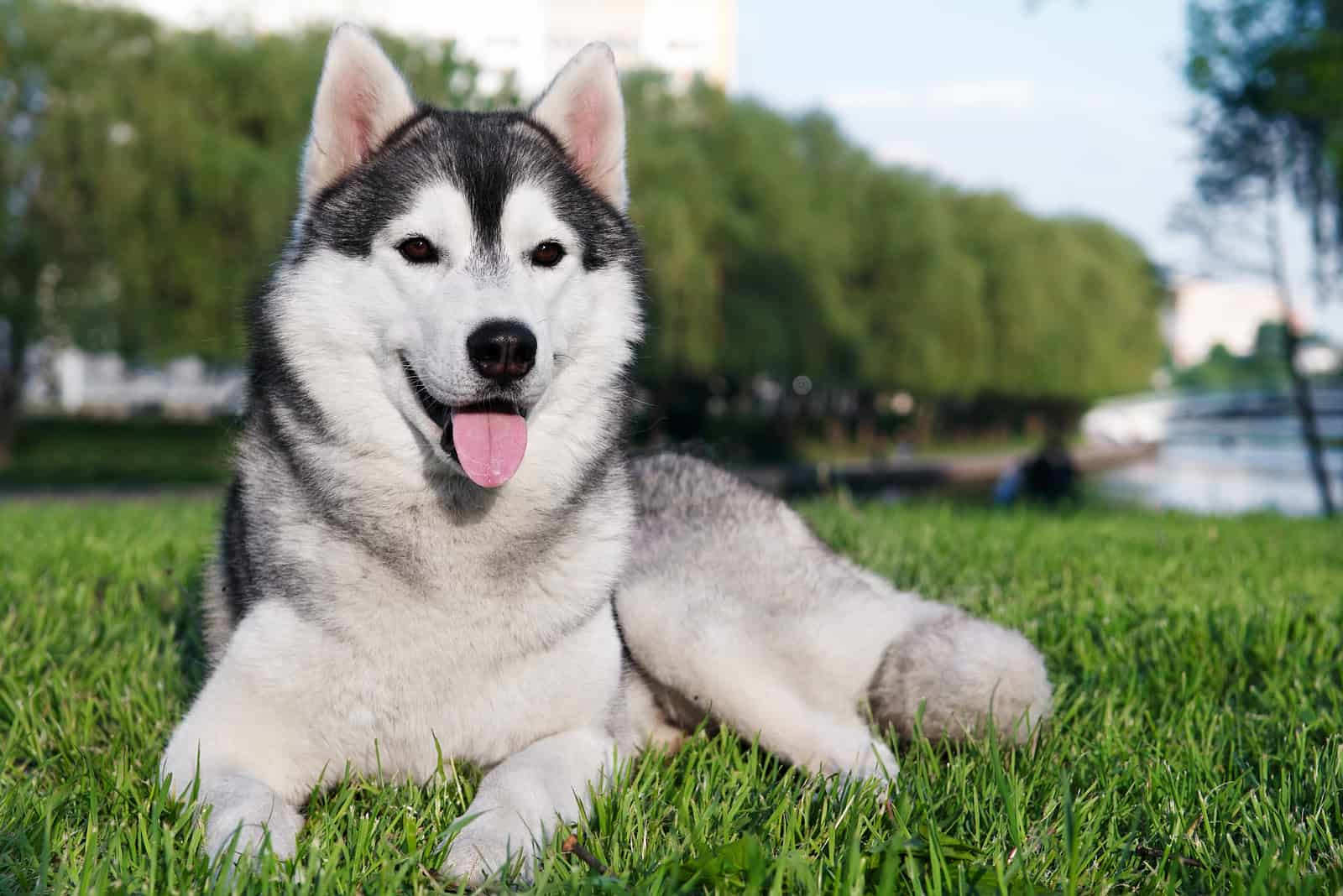
• Siberian Huskies are generally low shedders, except when it’s that time of the year when they blow their coat. By blowing their coat, we mean when they drop large amounts of hair all at once.
This usually happens twice a year, but it may occur more often if you live in warmer climates. Huskies from exotic places become heavy shedders for about a three-week stretch.
• Siberian Huskies are not recommended for apartments. However, if properly trained and exercised regularly, these pups can live in apartments.
• Siberian Huskies tend to wander away and disappear. They’re good at jumping fences, breaking tie-out chains, slipping through collars, etc. Only a high-fenced yard buried deeply in the ground will keep them from finding a way out.
• Siberian Huskies can be very destructive both inside and out. Never leave them unattended inside because they can cause a variety of damage. The problems don’t end outside. Huskies love digging, and will dig up everything, from yards to flower gardens.
If you can spare a place in your backyard and let the Husky dig there, they’ll be eternally grateful.
• Did you know that Siberian Huskies rarely bark? They’re more howling dogs. They will not bark if someone enters your property. This makes them awful guard dogs. They will most likely drop down and roll for the burglar to pet them rather than attack them.
• Siberian Huskies are not the right choice for new dog owners. They need a strong leader; someone who will maintain an alpha position. Obedience training is a must for this dog breed as they can get very stubborn, and potty training will make your life easier.
• Siberian Huskies are very curious. Their curiosity can lead them to injuries or getting lost while exploring something new. They need their daily dose of socialization, but keep them on the leash.
• Huskies are affectionate and good-natured. They do great with kids, but you should never leave small children alone with them or any other breed. Getting along with other dogs and people is also their trait.
• Siberian Huskies were once bred to need very little food in order to survive. This is still their modus operandi, meaning Huskies don’t need many calories per day. With proper dog food, your Husky will stay healthy and happy.
• Huskies shouldn’t go off-leash during walks as they tend to run away and chase smaller animals.
• They’re beautiful, and that’s the biggest reason why people purchase Huskies. However, their temperament and quirks rarely get checked out before buying. That’s why many Huskies are either lost, euthanized, or killed in accidents outside the home.
Male Vs Female Siberian Husky: Which Gender Is Healthier?
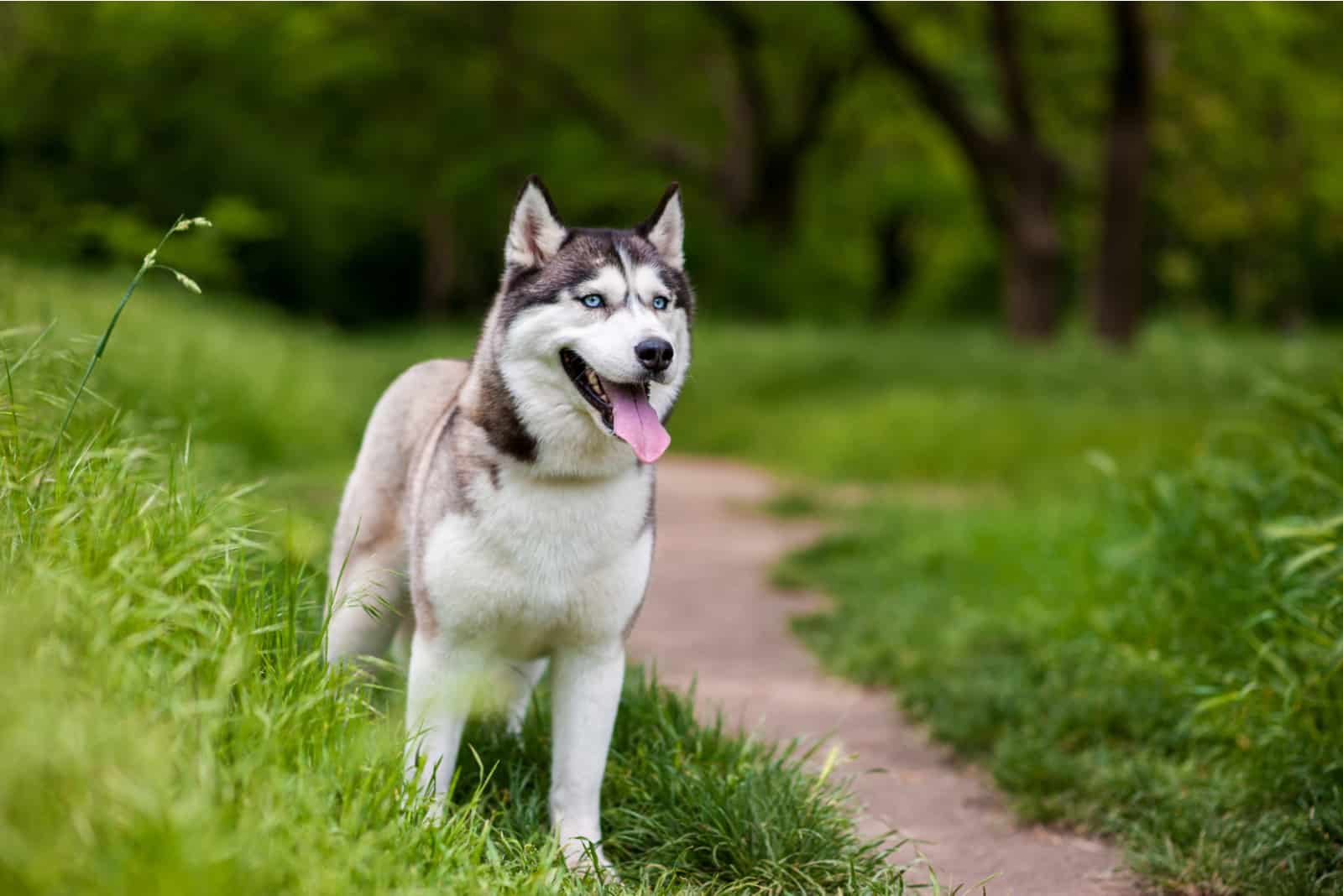
Huskies are generally a healthy breed, but still, they are prone to some health issues. Not all Huskies will get them, but it’s important to know which diseases are threatening. Both male and female Siberian Huskies can suffer from the same conditions.
If you’re buying a Husky, make sure you find a good dog breeder; someone who will show you health clearances for both puppy parents. These clearances will prove that the dog has been tested and cleared of certain health risks.
For Huskies, you will want to see health clearances from the Orthopedic Foundation for Animals (OFA) for hip dysplasia (with a score of fair or better), elbow dysplasia, hypothyroidism, and von Willebrand’s disease; from Auburn University for thrombophilia; and from the Canine Eye Registry Foundation (CERF) proving that their eyes are normal. All clearances can be checked on the OFA webpage.
Look closely for the following health conditions:
• Cataracts. A cataract is an opacity on the lens of the eye. It causes difficulty seeing. The eyes of such dogs have a cloudy appearance. Cataracts usually occur in old age, and they can be surgically removed.
• Corneal Dystrophy. This condition affects the cornea or outer transparent portion of the eye. This is an opacity that is caused by a collection of lipids in the cornea. Young adults usually get this condition, but it doesn’t affect the vision. Also, female dogs tend to get it more often than male dogs.
• Progressive Retinal Atrophy (PRA). This is a degenerative eye disorder. It causes blindness due to the loss of photoreceptors at the back of the eye. PRA can be detectable years before any signs of blindness. Luckily, dogs can use their other senses to compensate for blindness. There are numerous blind dogs that live a happy life as long as you don’t move the furniture around all the time.
Female Vs Male Husky: Which Is Easier To Groom?
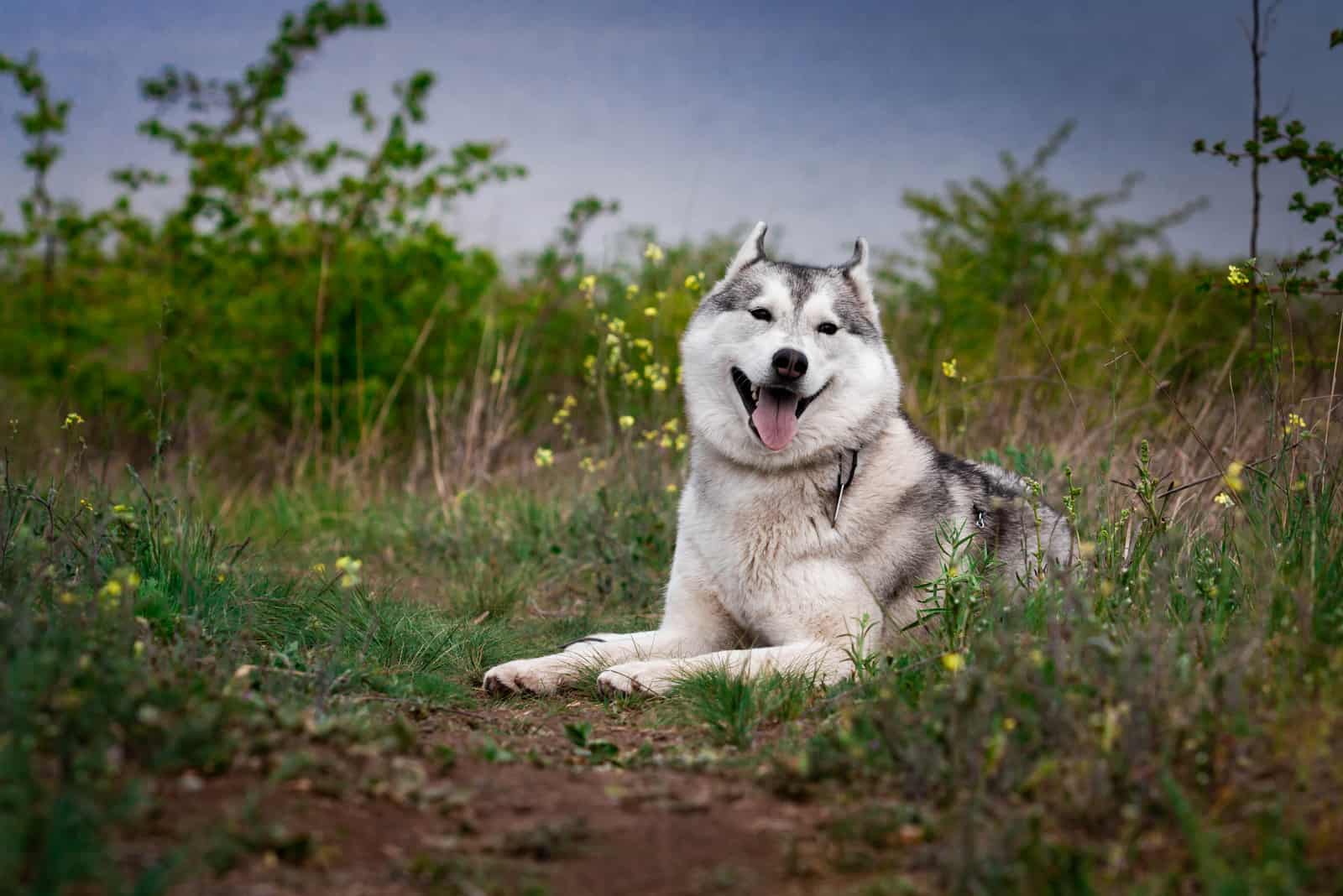
Gender has nothing to do with how easy female or male Huskies are to groom. Both genders will make you keep your vacuum cleaner nearby.
Huskies come in a variety of colors and markings. They can be all black, or pure white with colored markings on the body that include red or copper. Their eyes are either brown, blue, or a mix of the two colors. Faces usually have a mask that adds to their unique looks.
Huskies have a double coat with medium-length hair. Their topcoat is straight and the undercoat feels dense and soft to touch. Since they have two coats, expect a lot of shedding, especially in the spring and fall when they blow their coats.
When you put this coat info to the side, Huskies become quite easy to groom. However, warmer temperatures all year long can make your Husky shed more often. To avoid matting and excess hair all over the house, commit to brushing at least once a week; daily during the shedding season.
Siberian Huskies are clean dogs and will clean themselves. Yes, they do resemble cats! If you have a sensitive nose, this is the dog for you. Huskies don’t have that typical doggy smell. They don’t even need frequent baths!
Baths shouldn’t be done regularly unless the dog gets too dirty. When it’s bath time, use a high-quality dog shampoo to keep those natural skin oils in their rightful place.
Huskies’ teeth should be brushed at least two or three times a week to remove tartar buildup and the bacteria inside. Daily brushing is even better if you can commit! This way, you’ll prevent gum diseases and bad breath. There’s nothing worse than a dog’s bad breath!
Nails should also be trimmed once or twice a month unless your dog wears them down naturally. If you hear them clicking on the floor, then they need a trim. Dog toenails have blood vessels in them, so make sure you don’t cut too far or you’ll cause bleeding and scare your dog for all future trimming sessions.
Ears are another Husky body part that need to be checked weekly for redness or bad smell. Such conditions may indicate that there’s an infection. Wipe the ear out with a cotton ball dampened in an ear cleaner to help prevent the infections. Don’t go too far inside; only wipe the outer ear.
It’s highly important to have your Husky accustomed to brushing and examining. Start while he’s still a puppy. Many dogs are touchy about their feet and mouth, so the sooner they figure out it won’t hurt them, the better.
Every time you groom your Husky, check for sores, rashes, redness, tenderness, or inflammation on the skin, in the nose, mouth, ears, eyes, and feet. A weekly exam will keep your dog away from potential health problems.
The Difference Between Male and Female Siberian Huskies
Both Husky genders are great pets because of their loving and caring nature. These are loyal dogs with lots of energy to burn while playing with you all day long. There are differences between genders, but none of them makes one gender better than the other.
Let’s take a look at our comparison board!
[table id=53 /]
Male Vs Female Husky: Trainability
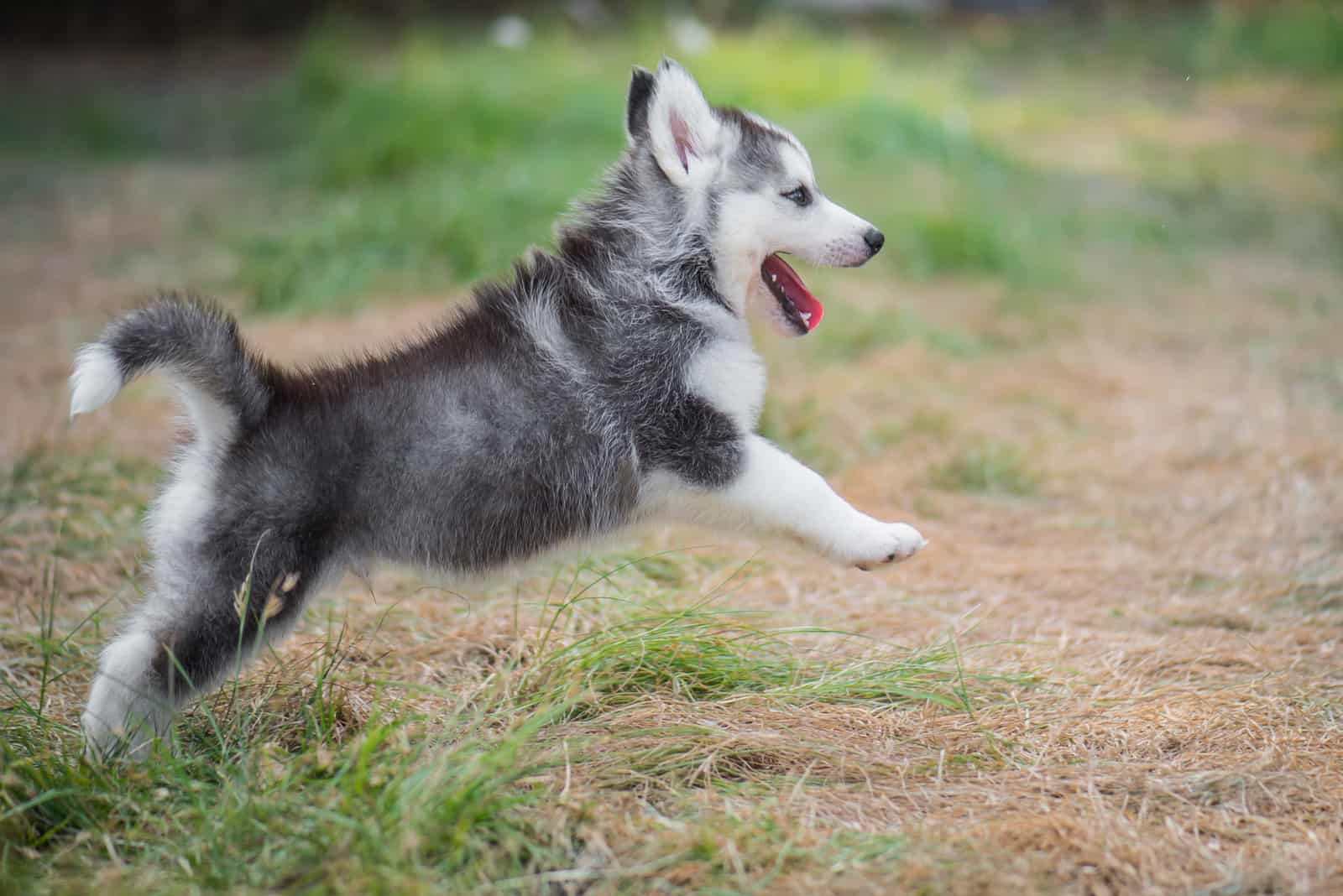
In comparison to female Huskies, male Huskies are much harder to train. They’re more dominant and need more time to become mature.
On the other hand, female Huskies are more sensible and mature, and they’re less dependent on humans.
Start training your male Husky from the very beginning. Puppyhood isn’t too early to start. Late training can cause attitude problems that can’t be solved easily since Huskies are very stubborn.
Female Huskies are calmer; thus, you won’t have any problem training them.
Male Huskies are stubborn and immature, but they are also brilliant dogs that can master all training lessons!
Female Vs Male Husky: Who Is More Authoritative?
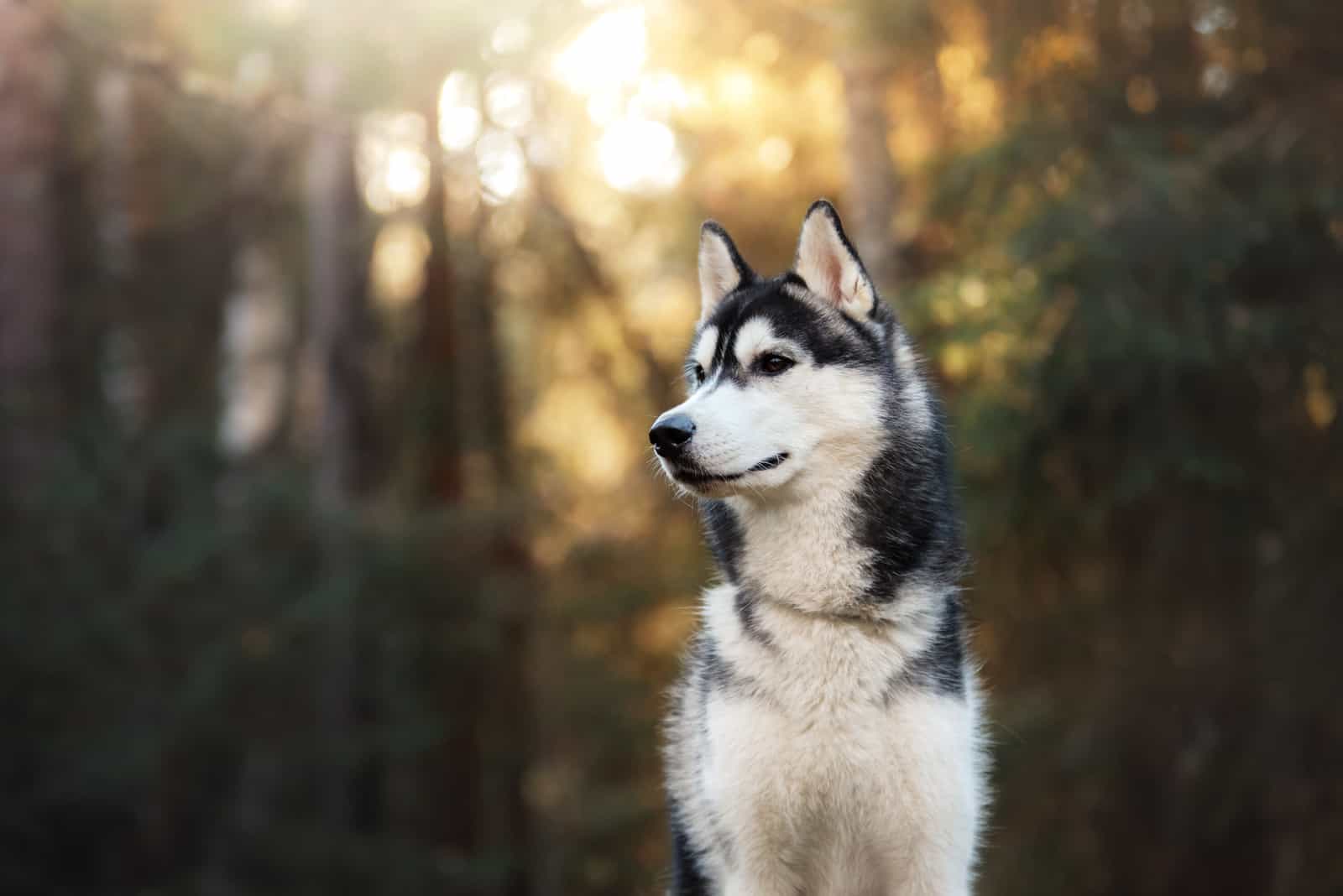
A Husky is a dog that needs a strong pack leader; otherwise, they’ll feel like they’re in charge. You don’t want that, believe us! Huskies follow all commands of their pack leaders, so this is a great way to have your dog be as obedient as it can be.
The pack leader shouldn’t be harsh; he or she should be confident and admirable. If you don’t have that much confidence, then your Husky will notice it and try to use it against you.
Male Huskies tend to challenge your authority more than females.
Use an authoritative tone every time when giving commands. It’s the only way that your Husky will recognize you as the pack leader.
Siberian Husky Male Vs Female Size
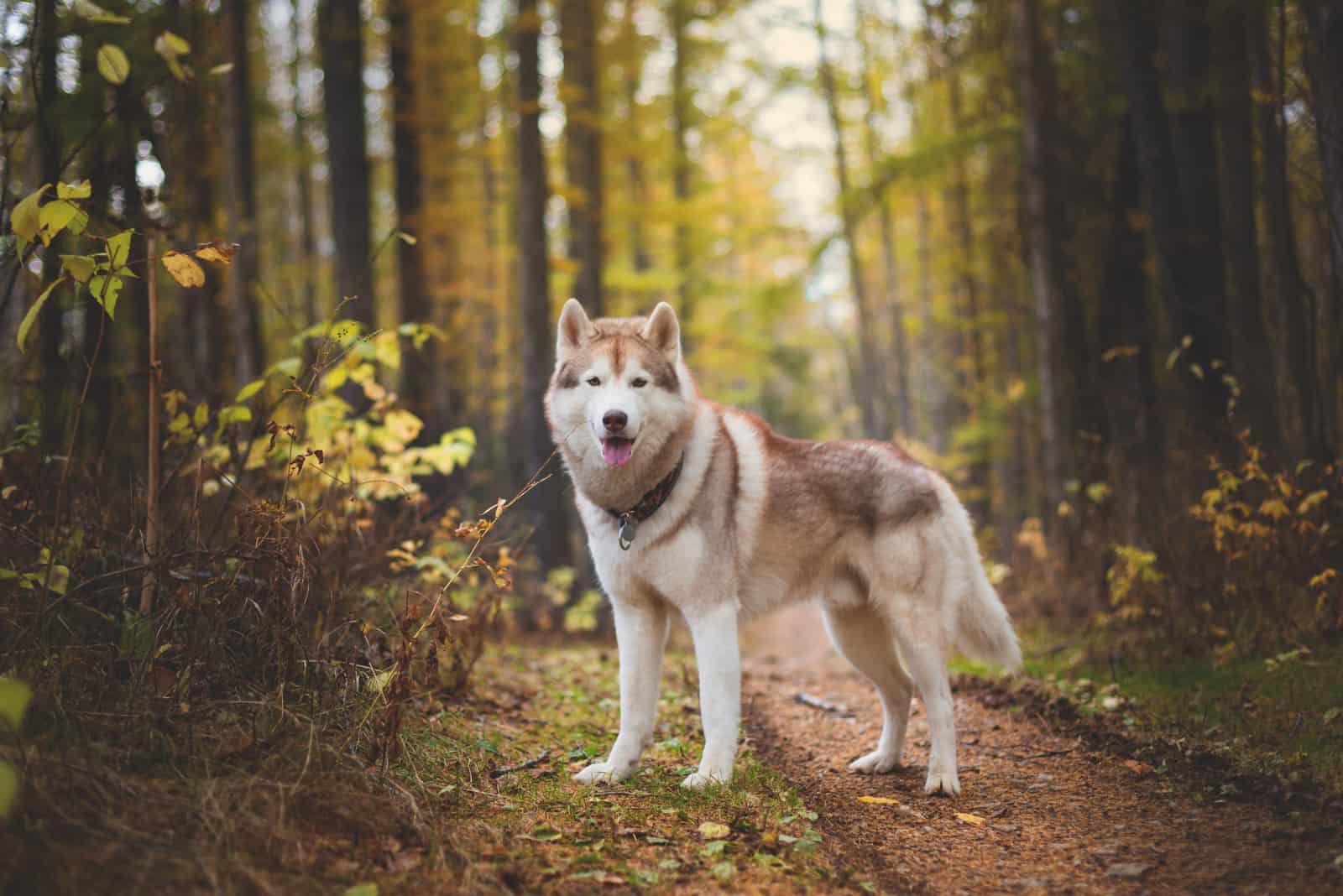
Huskies are medium-sized dogs. Male and female Huskies have different sizes, but this difference isn’t that significant. Males are, as a rule, always a bit bigger.
As we mentioned in our comparison board, the average height of a male Husky is 21 to 24 inches.
The average height of a female Husky is 20 to 22 inches.
These sizes may vary depending on the posture of the dog.
The main reason why males are always bigger than females is that male Huskies tend to protect their pack from threats. For this, they need to be bigger, dominant, and powerful.
Female Vs Male Siberian Husky: How Much Do They Weigh?
A Siberian Husky’s weight varies at different growth stages. At three months of age, a male Husky puppy will weigh around 17 to 23 pounds. But, a three-month-old female Husky will weigh 14 to 20 pounds.
A six-month-old male Husky will weigh around 32 to 43 pounds, and a six-month-old female Husky will weigh about 26 to 37 pounds.
Some dog experts believe that both males and females should have the same weight. Still, Mother Nature doesn’t agree, and makes females always lighter and shorter.
The average weight of a male Husky is 45 to 60 pounds.
The average weight of a female Husky is 35 to 50 pounds.
Temperament Of A Siberian Husky Dog
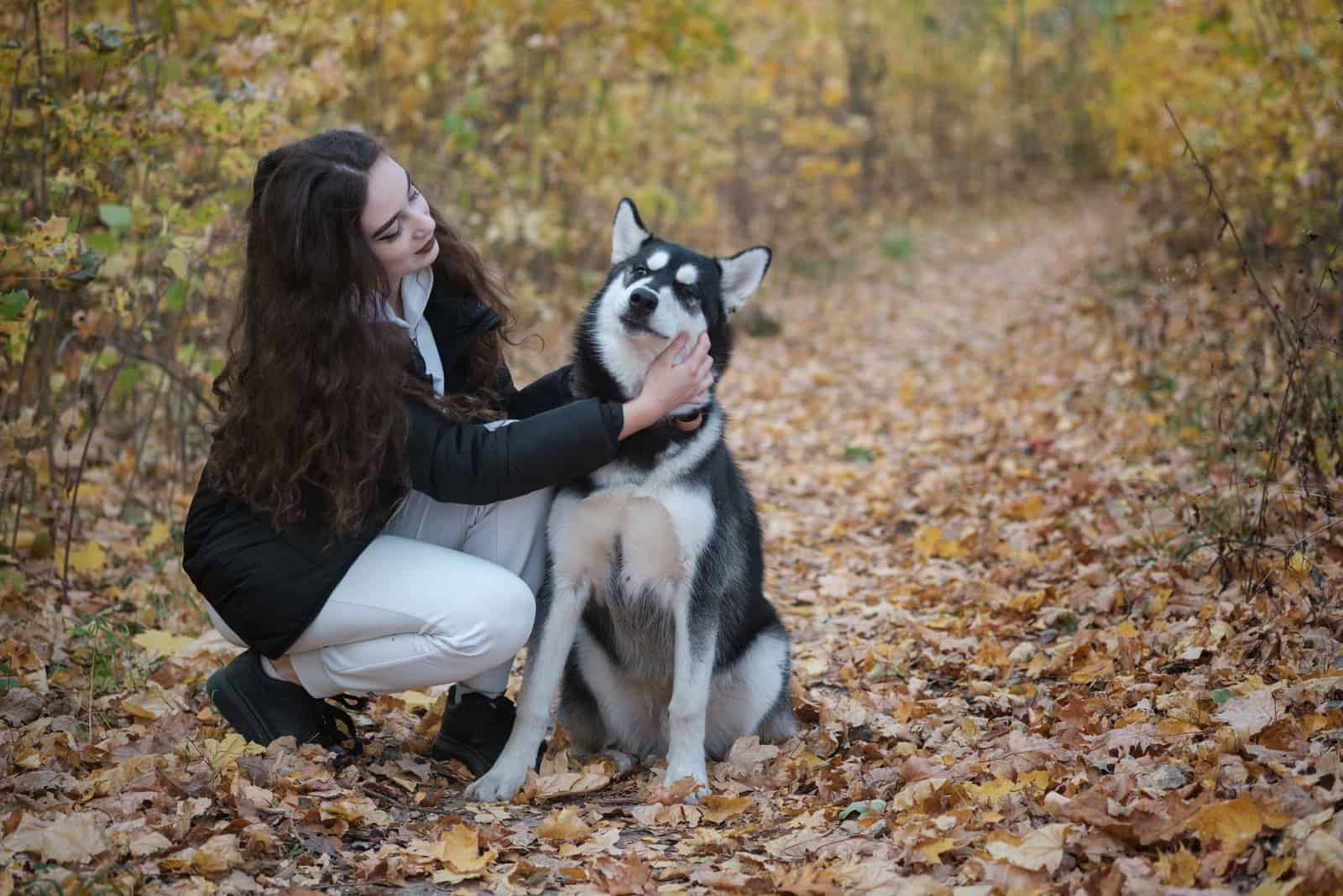
Unlike their female counterparts, male Huskies seem to have a better attitude. However, this can be applied to all dog breeds.
Males usually spend more time with their humans, and they tend to develop a better relationship with them, unlike females. They love to play with their masters, and they don’t have so many mood swings.
On the other hand, females are a lot moodier.
But, males are territorial and can express aggression in their behavior, which is something females don’t usually do.
Females are more of an introvert type and love being left alone. They will play with their owners, but they’re generally more mature.
Appearance: Difference Between The Female And Male Husky
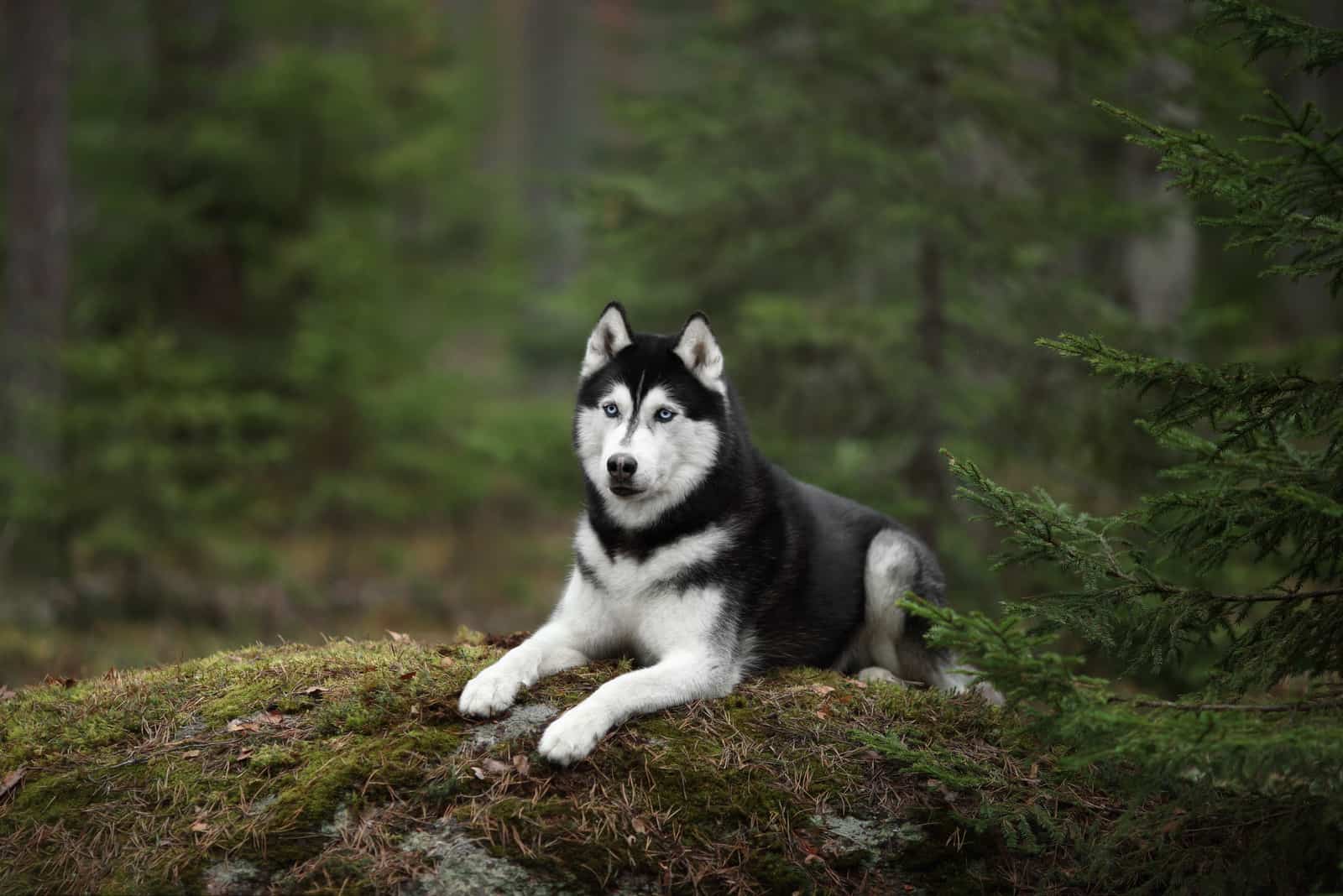
It’s hard to tell which is a female Husky and which is a male. There isn’t a considerable difference between the two genders.
Both have a wolf-like appearance.
Still, if you look a bit closer, you’ll see that males are bigger and have more hair. They also have a masculine head, which makes them attractive to females.
The female Huskies are fitter and have refined face features.
Medical Cost: Male Vs Female Siberian Husky
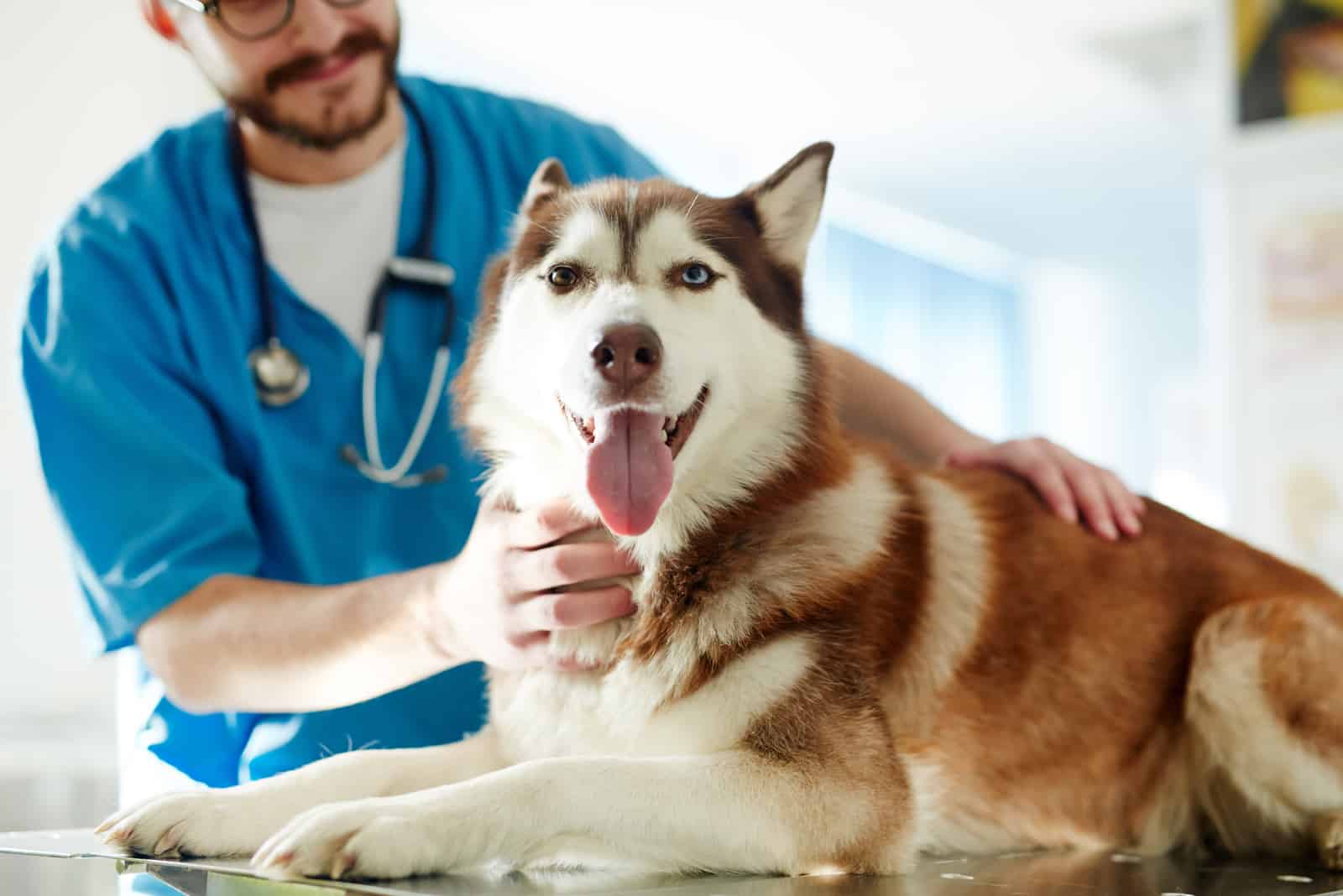
Both genders have different medical costs.
If you decide to get a female Husky, prepare for a big spaying bill. Females recover quickly, and you soon forget all about the process and the costs. Also, females are usually less prone to injuries.
However, male Huskies have other issues, like joint problems, which can be a bit expensive. Since they’re more energetic, they’re prone to injuries that might require surgery.
Lifespan of Both Genders
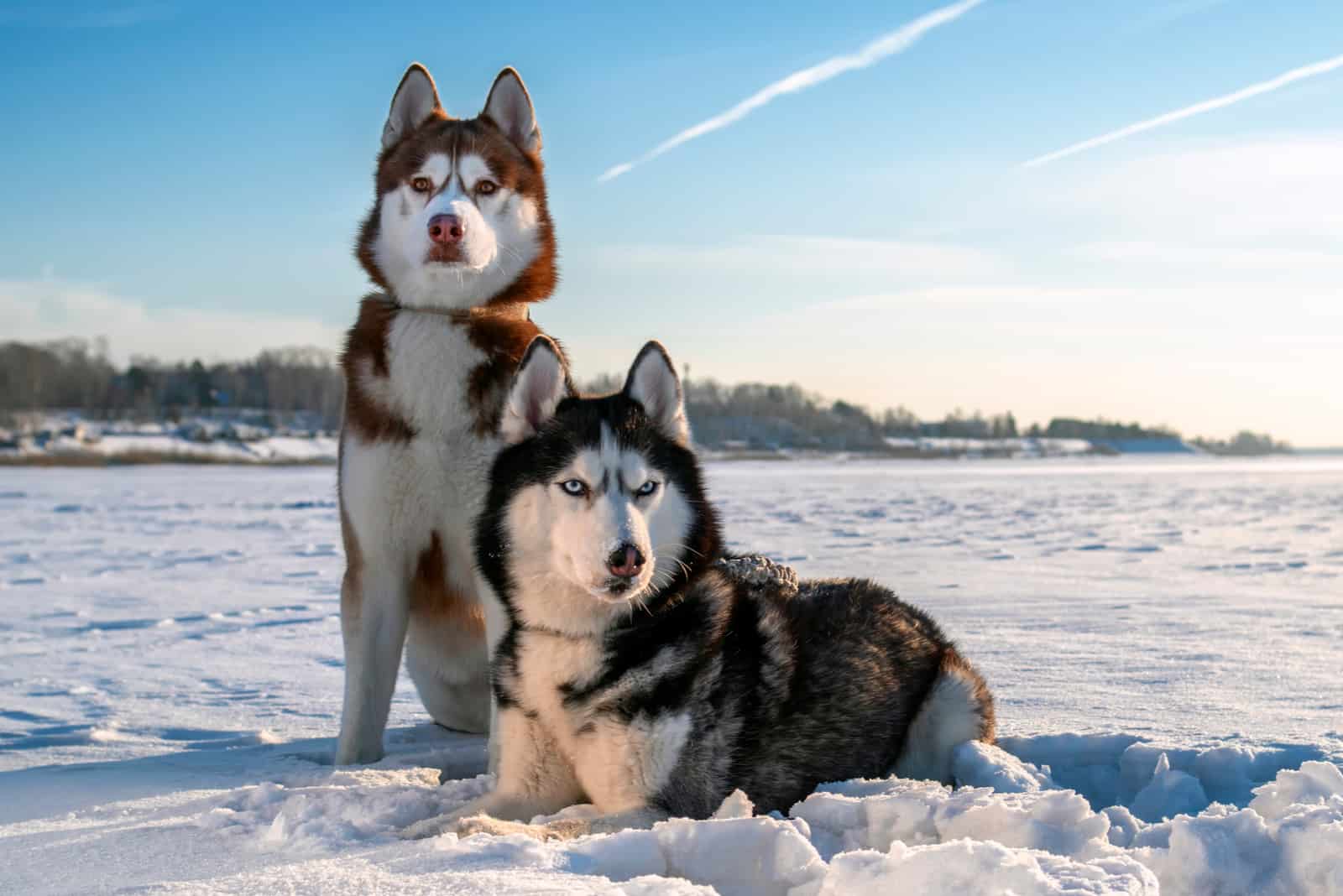
Female Huskies are known to outlive male Huskies. Still, this isn’t a 100% proven theory. Many dog owners have noticed that female dogs usually live longer than males.
But, this difference in life span is not that significant. Female Huskies usually live a few years more than male Huskies. They’re very calm dogs, unlike their male counterparts, and need less physical activity.
The average lifespan of the Husky breed is around 12 to 15 years. However, the lifespan of your dog depends on many factors like health conditions, quality of diet, and amount of exercise they do daily. The male Husky is energetic in comparison to the female, and thus, they need to release more energy every day.
If you can’t let your Husky out every day, there’s a big chance it will affect their health.
You must take good care of your Husky no matter which gender it is. Some illnesses may cut down their lifespan, but regular vet visits can make their quality of life a bit better.
There are numerous ways to improve your dog’s lifespan, so you might as well check them out:
• Get them to do daily exercise to make them lean. Lean dogs tend to live two to three years longer.
• Get your Husky vaccinated for certain diseases.
• Make sure your Husky has an active lifestyle. Entertain them, so they won’t get bored. Boost their mood any time you can because it has positive effects on the dog’s health, and thus, its life span.
Male And Female Siberian Husky Puppies: Prices and Upkeep
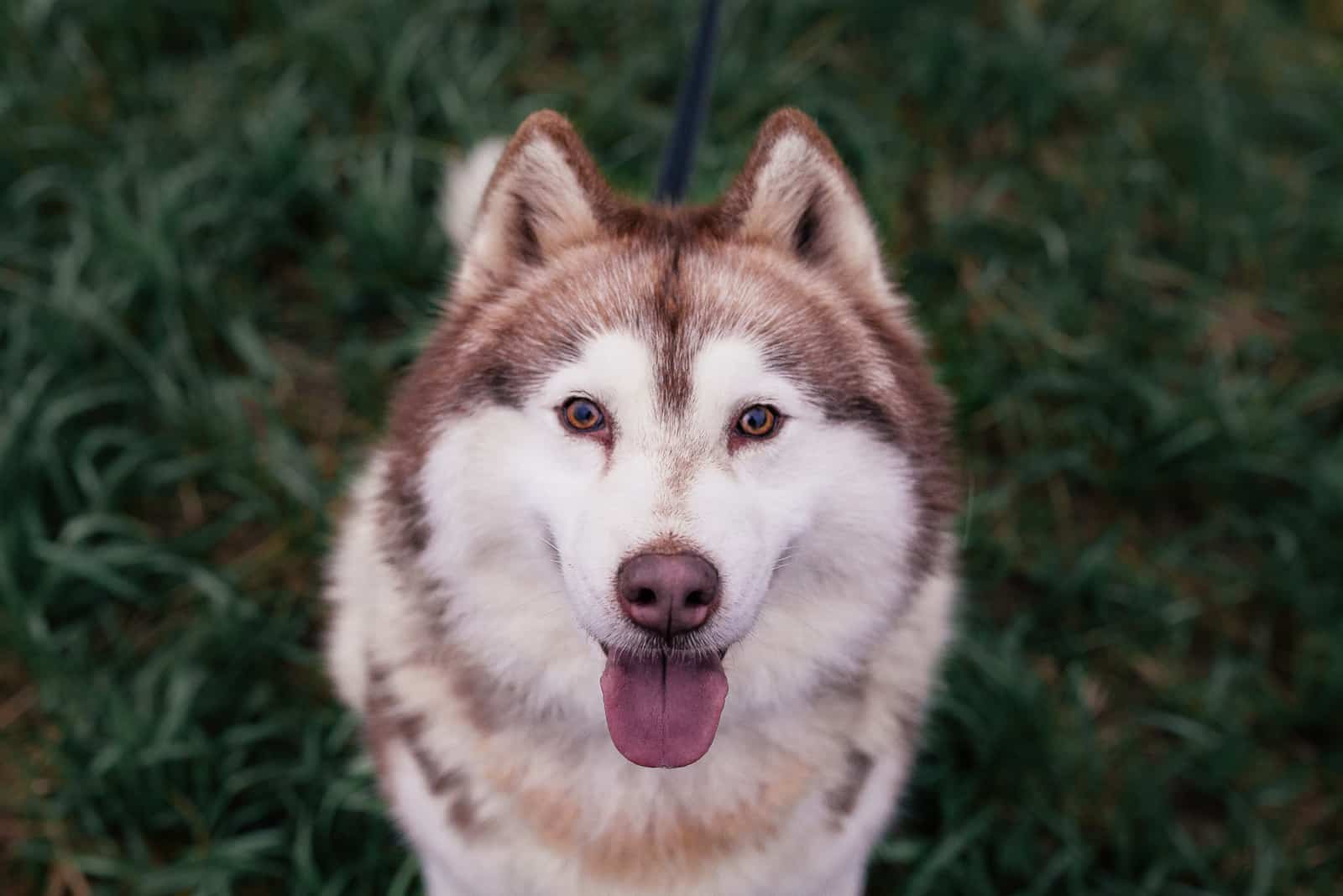
The Siberian Husky price depends on many factors including lineage, location, coloring, gender, and more. Usually, you should expect to pay between $600 and $1,300. The average price for a Husky is $725.
Huskies with a superior pedigree will cost even more! Top-quality puppies start at $1,400 and can cost as much as $6,000!
Yes, this dog breed is expensive, especially if you’re a first-time owner. But, there is another way you can own a Husky: adopt! Huskies or Husky mixes range from $350 to $550, including registrations, vaccinations, spaying, neutering, etc.
Adopting is a win-win situation where you save money AND you save a soul from a dog shelter.
This isn’t the end of costs for Siberian Huskies. They’re quite the spenders! Weighing anywhere from 35 to 60 pounds, the Husky is a medium-sized dog that needs 2 to 3 cups of dog food a day.
Good-quality dog food is $2 to $3 per pound. A 30-pound bag for $55 has about 120 cups of dog food. If your Husky eats 2 1/2 cups a day, then a 30-pound bag would provide 48 days of food. The end result will be eight bags of dog food a year, which you’ll need to pay $440.
Oh, and there are also treats that need to be added to the bill! Add around $5 to $10 each month for treats. However, treats can be human food too! Your dog can nibble on artichokes, Brussels sprouts, chestnuts, papaya, guava, etc. But, never give your dog processed food like spam, bagels, Doritos, Fig Newtons, Vienna sausages, etc.
Check our Siberian Husky feeding chart for more information on this dog’s nutritional needs.
If you’re lucky enough, Siberian Huskies are relatively healthy breeds. Why? Because vet bills can cost an arm and a leg. Some potential health risks for Huskies include seizures, defects of the eye like cataracts, corneal dystrophy, canine glaucoma, and congenital laryngeal paralysis.
Hip dysplasia is also a common concern.
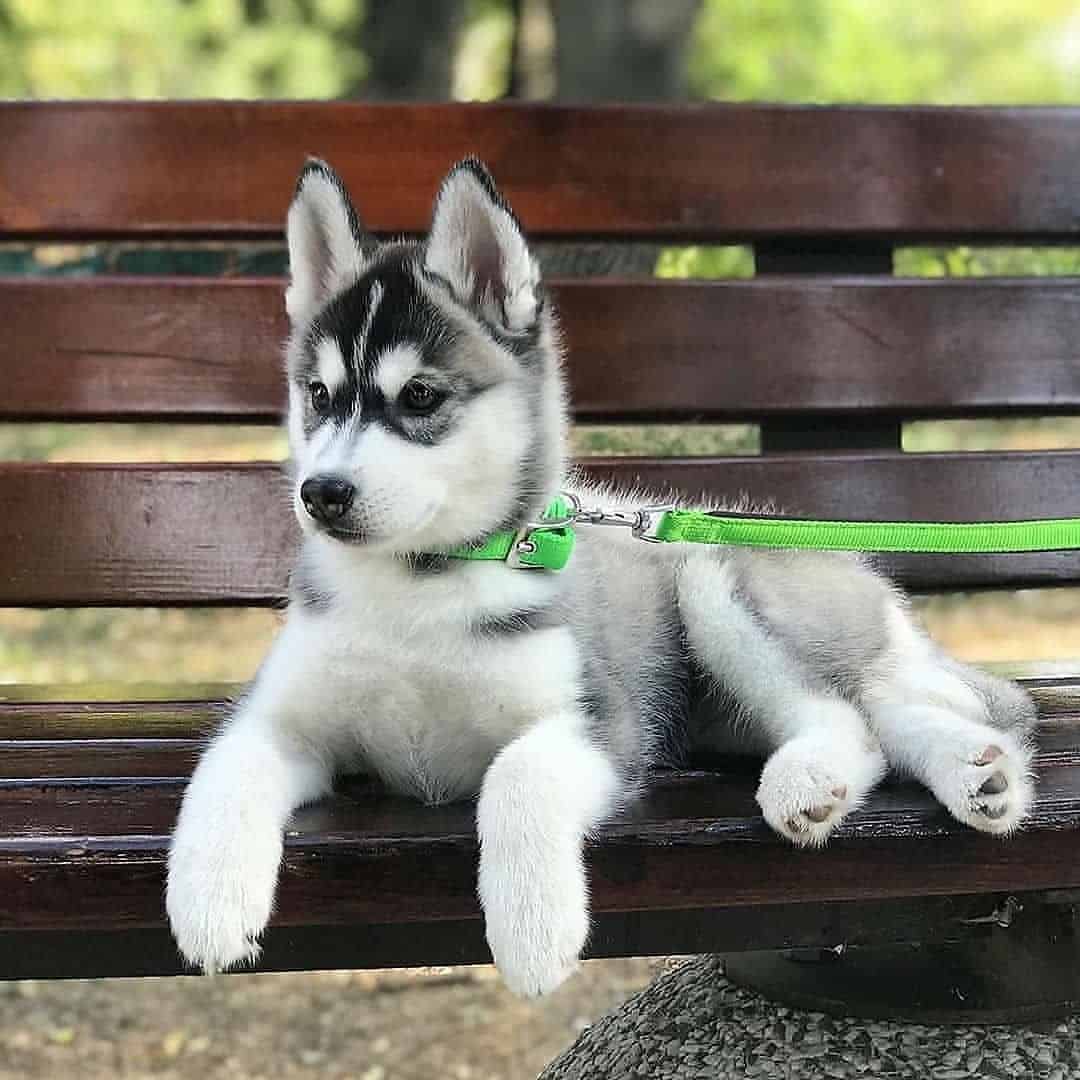
Photo from @huskycuddlle
According to Embrace Pet Insurance, here’s a list of the most common health problems, and their costs:
• Hip Dysplasia – $1,500 to $6,000
• Entropion – $300 to $1,500
• Corneal Dystrophy – $300 to $3,000
• Deafness – $100 to $300
• Follicular Dysplasia – $200 to $500
• Uveodermatologic Syndrome – $1,000 to $3,000
When your dog grows from the puppy stage, which requires vaccinations and getting spayed or neutered, vet bills should only be a few hundred dollars a year, assuming the dog is healthy.
Are Female Huskies Better Than Males?
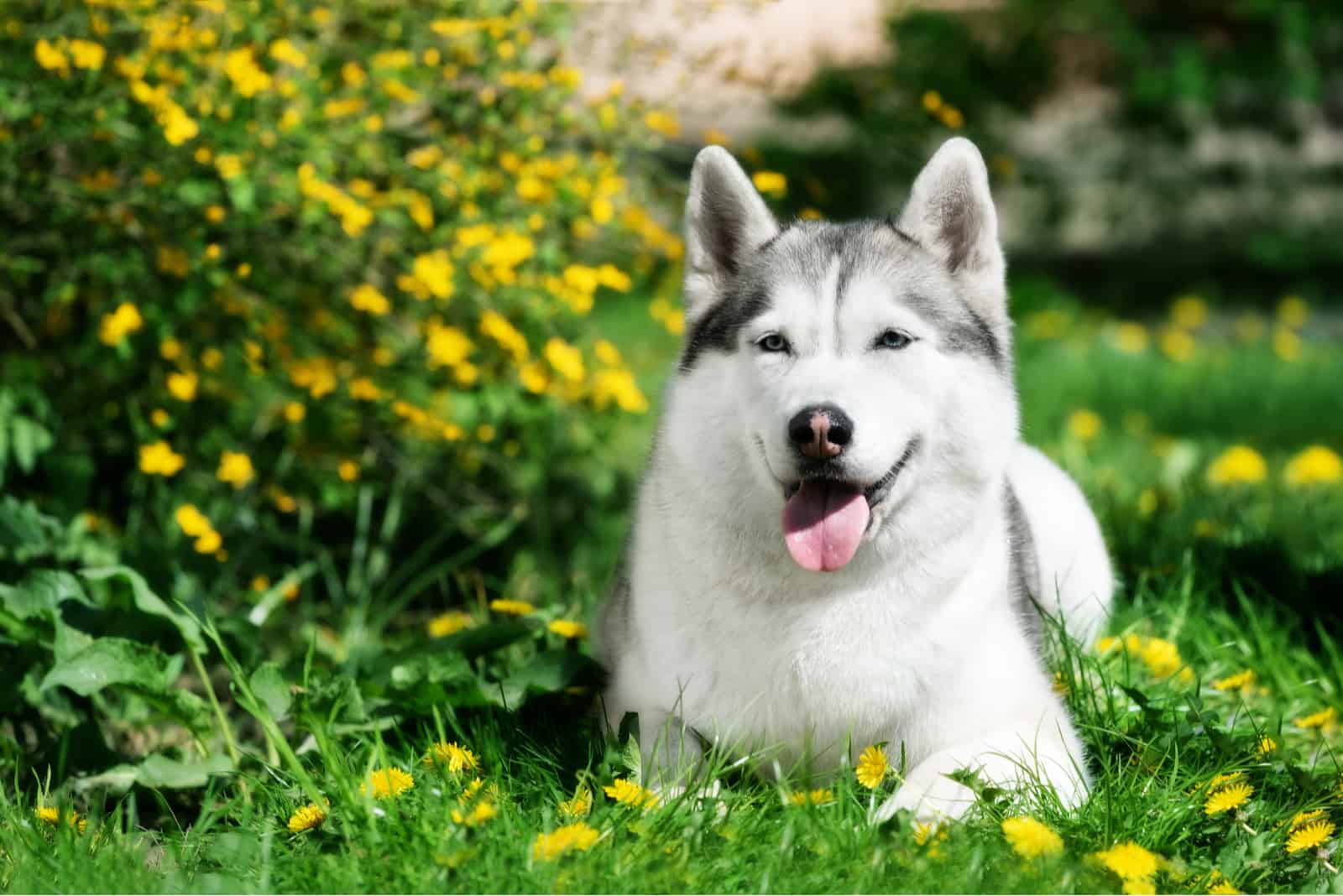
No, they’re not. But, let me tell you something: male Huskies aren’t better than females either!
Both genders are equally valuable and equally good pets.
Which breed you choose depends only on your preferences and the names you have ready for a Husky puppy.
Finally,
There are differences between a male vs a female Siberian Husky. But, these differences don’t mean that one of them is better than the other one. Huskies are one of the US’s most popular dog breeds, and that tells you a lot. Husky owners will agree: owning a Husky means the fun never ends!
